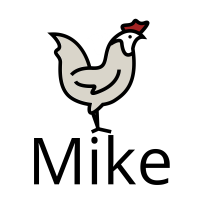For me, it may be that the toilet paper roll needs to have the open end away from the wall. I don’t want to reach under the roll to take a piece! That’s ludicrous!
That or my recent addiction to correcting people when they use “less” when they should use “fewer”


“Material is a design, telling you how far apart certain click targets should be.”
See, the sentence works without “language”. Its addition makes it overstated and pretentious.
If you follow a design, you are following the guidelines of how something should look.
But it’s a design for designs - it tells you how to design your own UIs, it doesn’t dictate what for example a calculator app should look like. You can follow Material Design and still end up with a terrible UI design.
Surely that’s enough for some distinction, right?
Sure the sentence works, but now you’ve lost the distinction between more of an abstract concept and a concrete implementation. It wouldn’t be wrong to call both material and mui a design, but in conversation it can just be useful to have a little more distinction between the two without having to go into the details explaining it.
(also damn i should have chosen a better example than material, their naming is pretty confusing)
No, design and design language are two different things. A design language is a set of design rules that define a common look and feel across a product line. There’s usually a manual put together by a designer and their team defining what these commonalities are.
Look up “Apple Snow White design language“ for example.
They’re trying to solve one of the hardest problems in Computer Science: Naming things.
What do you call the framework, or design system—that thing that’s not quite a glossary of the terms—we’re going to use to describe the meta conversations around design?
“Design language” encompasses the colors, spacing, tokens, typography ramps, general rules, and all the other fiddly bits to unify on so that the more interesting parts of design and user experience can happen.
Naming things is hard :/